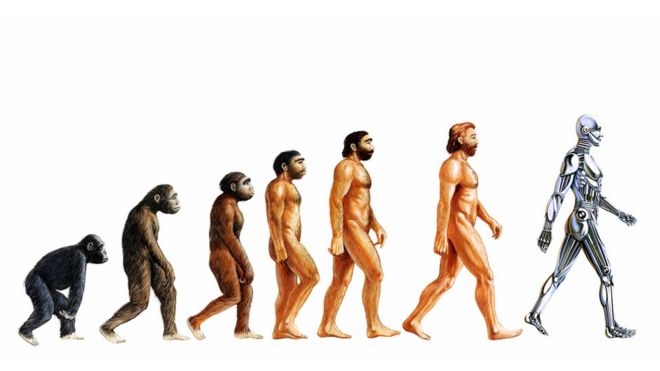Are we living totally distracted lives? Are we able to think deeply and reflect meaningfully on the rhythms of our lives, or are we being hurtled on waves of information that take us away from the moments of our lives that we'll never get back? It's a loaded question, I know; but it should be one that gives us all pause.
An article in the Washington Post lays out several studies, one in 2003, another in 2014, and a recent one showing that students who use laptops in class actually perform worse than those who don't. A new study conducted by MIT at the United States Military Academy compared the exam results of students in classes that allowed laptop use and those classes that prohibited them. An economics professor allowed 1/3 of his economics class to use laptops to take notes, another 1/3 to use tablets, and another 1/3 to use no technology at all in the classroom. The students who were prohibited from using laptops had an average score 18% higher than their lap-top wielding counterparts. The research also tested tablet-only classrooms, but the result was not markedly different from the laptop classrooms. And even though students were not allowed to check email or play video games, the technology still seemed to interfere with their learning.
The study in 2014, performed by a researcher from Yale and another from Princeton showed that students who used laptops in classrooms retained less information than those who used longhand; that somehow in the process of typing, there wasn't the strong neural connections to the learning than those who went through the process of writing. One insight was that students tended to type out the lectures word for word, whereas those writing in long-hand had to process the information into their own words, which required a higher level of thinking than simply flicking ones hands across the keys.
Such insights seem to be intuitively understood by a number of famous writers and even movie producers. George Lucas maintains he has avoided the Internet for 15 years. The prolific movie producer, Woody Allen--whose made a movie a year for the past 50 years, it seems--doesn't have a computer, doesn't use email, and has a "limited-use cellphone." Similarly, George Clooney doesn't use a computer, and Quentin Tarantino writes all his movies by hand in fresh notebooks and black and red pens. The same can be said for the Game of Thrones author, George R.R. Martin, and the proliferous Danielle Steele.
What these, and many other, writers understand is that their work requires tremendous focus: all you have is a blank sheet of paper to stare into and create an imaginary world with. If you are distracted at all, you're done for.
So how is that different from any other activity that requires focus? It doesn't. And this study by MIT is on the way to proving it. And not only are there continuous reports and studies emerging about the distracting nature of technology, there are others claiming that our brains are literally being re-wired, such as the book The Shallows by Nicholas Carr that argues that as we're surfing the net and googling ourselves into oblivion, we're losing our ability to think deeply.
So what to do? We live in an emergent technological age. There is more technology today than at any other time in the history of the human race. And we have only lived with the Internet for 25 years, and with remote devices about 15 years, and the results of all this technology use will not be in for another 20 years when we look back and see how it's all changed us. We are becoming a different species. In many ways, the past 30,000 years of human existence are being rewritten: when once we were largely agrarian people, now the majority of us couldn't light a fire from scratch, or hunt and cook basic food. In fact, the most deaths in the wild are caused from starvation in spite of the ample availability of food.
So what do we do? We have to somehow reclaim our lives, our memories, our focus, our reliance on the knowledge and wisdom passed along from generations of people who have lived before us. We have to have greater discipline over our technological tools. We have to see them as they are, and not what we want them to be. As Wired Editor and famous techno-thought-leader Kevin Kelly argued in his book What Technology Wants, we have to think of technology as an overgrown hedge and just cut it all back to a manageable size. We have to in the meantime reclaim our lives, and have our heads in the present moment of relationships and memory making (not picture taking) and reflection; we need to have computer prohibition movements in our lives and homes--at least for a time--in which we unplug ourselves from them and breathe in some fresh air without the positive ions from a computer screen. We need to reclaim our sleeping patterns by turning our phones off and refusing to stare at their screens when we can't sleep.
Our children is another issue. I've written before about the importance of shutting off the television, and about executives of the fortune 5 tech companies who don't let their kids use tablets or iPhones or computers; whose grade five children have never done a Google search. Are we getting the picture yet? This stuff that we take for granted and spend tens of thousands of dollars on is compromising our lives. And there are those, like the celebs above, who understand this reality, and a vast majority of those who don't.
Consider us warned. The data are out there. We are waking up to this reality. We now know. But will we listen?...



















